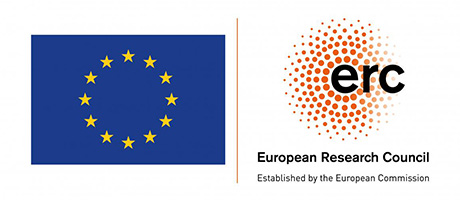Researching Global China Conference – Innovation and Challenges
Date: Tuesday 25th & Wednesday 26th February 2025
Location: Hub Theatre, The Open University, Walton Hall, Milton Keynes MK7 6AA
Call for Papers: CLOSED
Conference organiser: REDEFINE Project Team, Faculty of Arts and Social Sciences
Welcome to the Researching Global China Conference, with this year’s theme looking at methodologies around Innovation and Challenges.
We are pleased to announce our Keynote Speakers will be Professor Ching Kwan Lee (UCLA) and Professor Julie Klinger (University of Delaware)
Conference Convenors: Prof. Giles Mohan and Natalie Pollard, in the School of Social Sciences and Global Studies (SSGS) at The Open University
Conference Team: Natasha Sanchez, Weiwei Chen, Ran Hu, Philipp Katsinas, Samuel Rogers, in the School of Social Sciences and Global Studies at The Open University.
Register for this event via Eventbrite
Please direct any questions to [email protected].
Tuesday 25th February

Beyond the Grand and the Granular in Global China Studies
Keynote Speaker: Ching Kwan Lee
Abstract: The field of Global China Studies has become a growth industry in scholarship and journalism, in tandem with China’s outward expansion and engagement in all forms of power and influence. Two broad approaches are identifiable, with scholars focusing either on (1) grand strategy, elite discourses and aggregate tendencies or (2) granular dynamics of locality specific cases. This talk proposes moving beyond this bifurcation to pursue “extensions” to theory, comparison, connection and circulation.
About the speaker: Ching Kwan Lee is professor of sociology at the University of California-Los Angeles, and the author of three monographs on China’s turn to capitalism through the lens of politics, labor and global development. Her 2017 book The Specter of Global China (University of Chicago Press) received seven international book awards, including the prestigious Alice Amsden Best Book Award and the Joseph Levenson Book Prize. Her new book, Forever Hong Kong: A Global City’s Decolonization Struggle (Harvard University Press, 2025), is a critical ethnographic history of Hong Kong people’s decades-long uprising against British and Chinese colonial domination.
Panel sessions to follow
Wednesday 26th February

Erosion is a constant process: Research notes on extractive infrastructures amidst contemporary global (dis)integrations
Keynote Speaker: Julie Klinger
Abstract: To conduct grounded transnational research on major investment, development, and extractive projects is to confront erosion at every turn. Promising projects and lauded investment partnerships turn sour, or don’t turn out as planned. Or when they succeed, they erode local socioecological systems, often prioritizing global commodity flows over place-based land use and livelihoods. As future ruins, infrastructures decay even before construction is completed, and the common sense of political economic systems can shift many times in a single generation. In a time dominated by narratives of disruption, destabilization, disintegration, and other declensionist tropes, attention to the continuities, reintegrations and flows is especially important. Drawing on ongoing collaborative research on mineral and waste flows on three continents—all of which intersect in some way with China but also with entities from many other parts of the world—this keynote explores how attention to erosion as a constant, multivalent process can inform engaged research and theory in perennially strange times.
Panel sessions to follow
Conference registration is now open. Please go to Eventbrite for tickets.
Full conference rates as well as online streaming for Keynote talks, are detailed on the event page.
Registration fees
In person
Academics – One day attendance - £30.00
Academics – Two Days - £55.00
Students – One day attendance - £10.00
Students – Two days - £15.00
Online
For online access to the keynote speakers please register via Eventbrite. A link will be sent to you nearer the time.
Please note this is online access to the KEYNOTE Speaker sessions ONLY!
Venue
The face-to-face component of the conference will be held on The Open University’s Walton Hall campus in Milton Keynes. It will begin around 09.30 am on Tuesday 25th February and continue until Wednesday 26th at around 16:30 pm.
The conference will be held in the HUB Theatre - please see signage for directions.
Accommodation
We encourage you to book a hotel in central Milton Keynes, since the university is some distance from restaurants and other amenities. The university is around 4 miles from central Milton Keynes.
Hotels close to the train station include:
- Travelodge At The Hub 312 Midsummer Boulevard, Milton Keynes MK9 2EA
- Leornardo Hotel Milton Keynes Midsummer Boulevard, Milton Keynes MK9 2HP
- Premier Inn Milton Keynes (Theatre District) 801 Avebury Blvd Milton Keynes MK9 3JT
- Easyhotel Milton Keynes Central Silbury Boulevard, Milton Keynes MK9 2AH
- Holiday Inn – Milton Keynes Central, 500 Saxon Gate West Milton Keynes, MK9 2HQ
Use discount code "OP8 - The Open University - 24th Feb" when booking the Holiday Inn. Please note, this discount is only available for Milton Keynes Central.
General
The Open University campus is a working campus with staff and students on site.. Please plan to bring anything you will need during the day with you as the nearest convenience store is about a mile from campus, and of course feel free to speak to organisers if you run into difficulties.
The Campus is a NON SMOKING campus, however there will be a designated area set for smokers.
Travel to Milton Keynes
By train/coach
Milton Keynes Central is the closest station to The Open University. It is a mainline station with regular trains to and from London Euston, Birmingham, the North West of England and North Wales. The X5 bus service running between Oxford and Cambridge also stops at Milton Keynes Central.
Getting from Milton Keynes Central to The Open University
The campus is approximately 4 miles from Milton Keynes Central station. Delegates will need to make their own way to and from the campus on both days of the conference. Taxis from Milton Keynes Central to the campus are the best option, especially if you can share. They typically cost under £10. The following taxi companies operate in Milton Keynes:
- Skyline: 01908 222111
- ASL Taxis: 07836 676055
- Raffles: 01908 222222
By car
Use the postcode MK7 6AA to locate the main campus. Please use the entrance from Brickhill Street V10 to enter the campus via St Michael’s Drive. The entrance from Groveway H9 via Walton Drive will be closed. See OU travel advice page for more information.
Parking
There is free parking available on campus, but you will need to book this in advance by emailing [email protected] (copying [email protected]) with the following message: ‘Dear Open University Security, I will be attending the Researching Global China Conference in the Hub Theatre during the 25th & 16th February and write to request permission to park my vehicle on campus. My license plate number is _______________’.
By air
Airports in London, Birmingham and Manchester are well connected to train services that call at Milton Keynes Central.

Get in touch
Contact the team at [email protected]
or write to us at:
REDEFINE PROJECT
Faculty of Arts and Social Sciences
The Open University
Milton Keynes
MK7 6AA
UK

